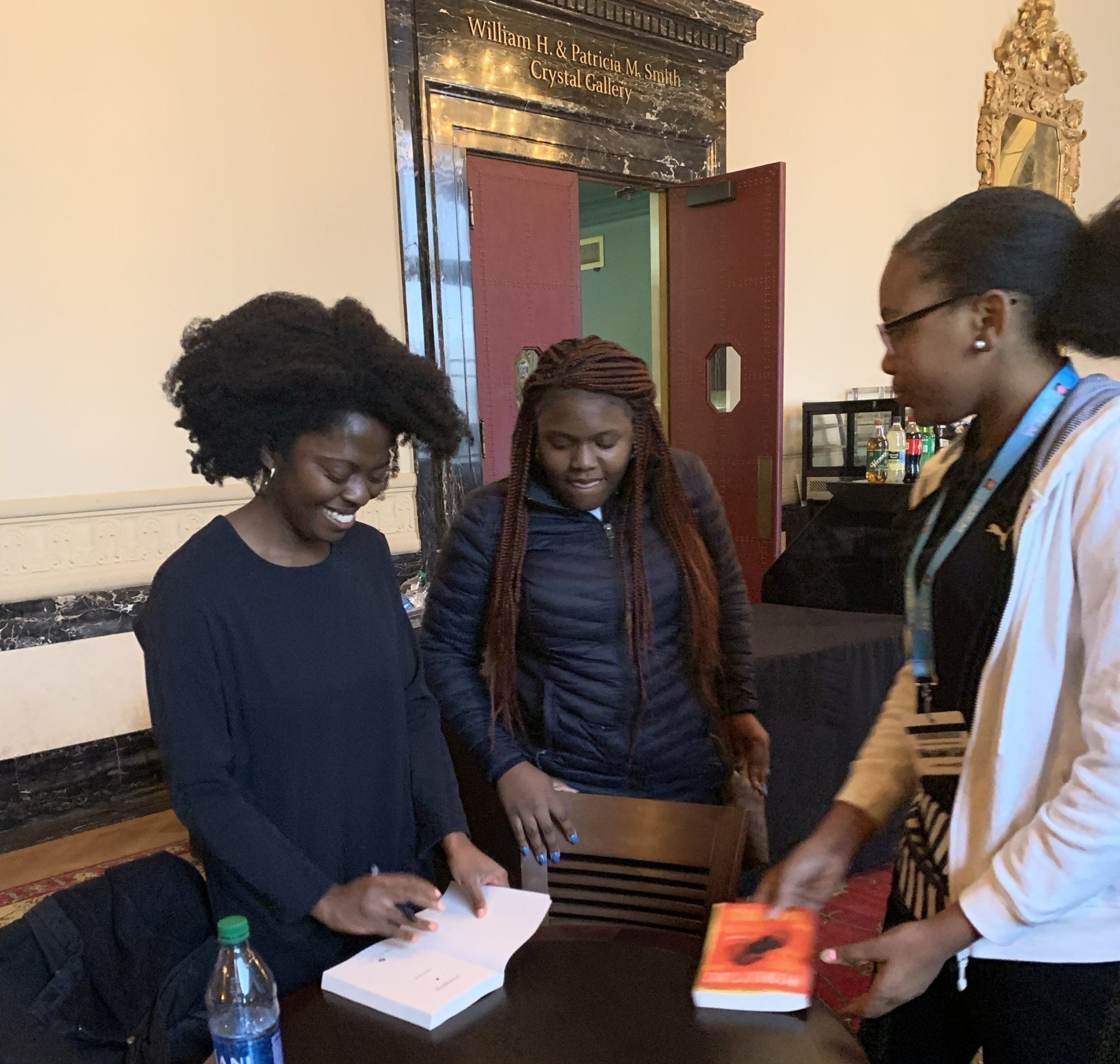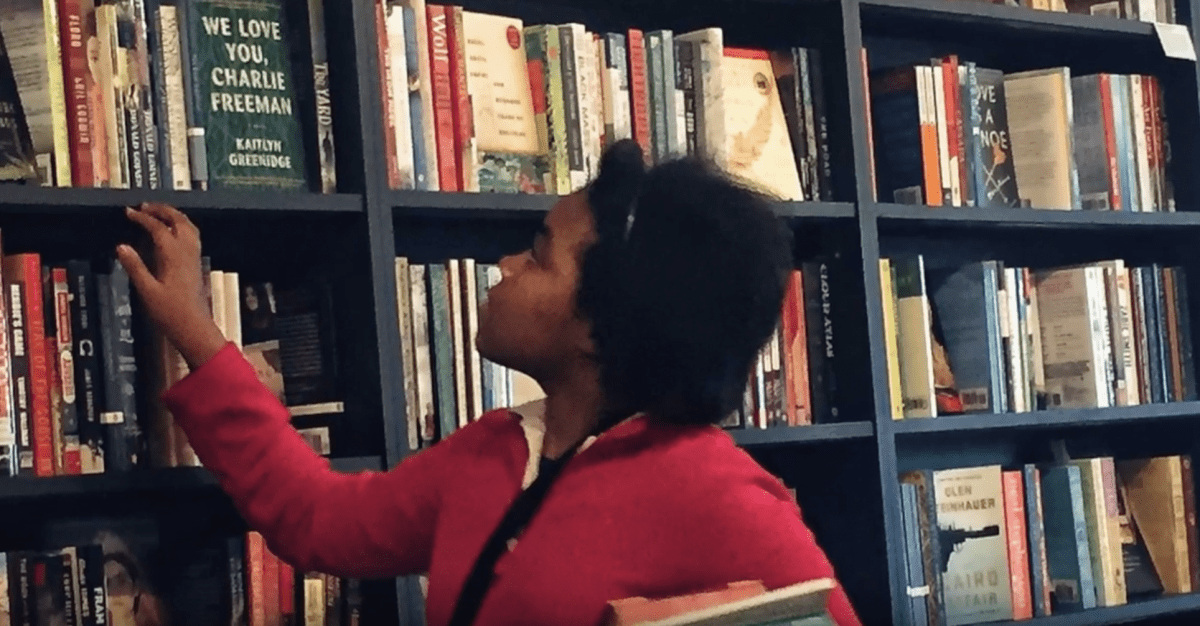
BookUp is not simply a reading group. BookUp is the emotional process of bridging students to books, to each other, to the world around them and to themselves.
Writer-in-Residence Jassmine Parks led middle school students through many stories this year. A graphic memoir about being raised by grandparents. A novel about a rebellious Mexican-American teenager. The story of two African sisters who are separated and their lineages traced to the present day. These journeys are made possible through BookUp, a reading program for middle school students originally designed by the National Book Foundation to encourage literacy and a life-long love of reading.
Through group discussion, writing activities, and visits with contemporary Young Adult authors, books come to life in BookUp. In a typical session, after opening with an improv or community building exercise, Jassmine moves into whole group reading.
In BookUp, we shake it up and pull students in. I don’t force students to read. I post pages or characters available for students and they volunteer. Students act out the story, they may sing or rap out the words, or whatever connects them to the text so that they are genuinely interested in the story, can retain information, understand context and make their reading experience more enjoyable.
Students also interact with the text through discussions, writing prompts, art exercises, and more. This year, Jassmine shares, “Students wrote advice letters to the characters to encourage them to overcome challenges, acrostic poems for characters’ names that embody their personality and stories, persona poems written from the perspective of the characters, and art they created by reimagining scenes from the books.”

Jassmine has seen BookUp students grow in myriad ways. One story in particular stands out:
One of my students shared with me in private that she struggled with reading and was afraid to do so aloud or in a group, but loved great stories. We received the book Homegoing by Yaa Gyasi two weeks prior to an opportunity to meet the author. The student was so excited about the meet and greet that she finished the book within the week, a big accomplishment for her! When we met Yaa, she asked the author the most questions. I could tell that the experience increased her confidence, leaning into the challenging experience that reading is for her, but also pushing through it and retaining comprehension to engage the author in dialogue. I am very proud of her and what that may mean for her journey with storytelling.
BookUp also builds students’ personal libraries through award-winning titles from the National Book Foundation and field trips to local bookstores.

Some of my students didn’t have home libraries at the beginning of our sessions and by the end of the program they had about 5-6 new books. Before the closure of schools we were slated to visit The Vault of Midnight, a comic book shop and BookStock, Michigan’s largest used book sale. Students would’ve doubled or possibly tripled the amount of books from the initial books they received. It is educationally equitable to ensure students have access to books outside of traditional learning settings. Books that they own, that they can take wherever they are.
Building community and maintaining the culture of BookUp sessions is essential, Jassmine says, for connection and collaboration.
Knowing that they have a community that cares for them allows for students to buy into the program. Once we did an exercise called “Crossing the Line.” Students were given statements and if they felt as though the statement was true for them, they would cross the lined tape and face their classmates who did not cross over with them. The activity was to be in silence so students could observe who stepped forward and who did not, who had an experience that was similar or dissimilar. Students felt compelled in the reflection after the exercise to share some of the things that they have experienced in life: death of loved ones, parent/sibling in prison, bullying, suicide, and friendship. Students practiced empathy and being in support of one another. We discussed self and community care practices to ensure their mental health was tended. The session was immensely powerful and transformative. Our classes moving forward were closer in and outside of our sessions.
Evidence shows that middle school is a key moment in student’s literacy development, and their experience of reading in these years will contribute to whether or not students become lifelong readers. Programs like BookUp and outstanding Writers-in-Residence like Jassmine make the connection between students and books vital, enduring, and transformational.